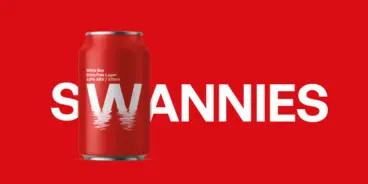
NZ Hops announces hop oil partnership
Brewers will soon be able to source New Zealand hop oils after NZ Hops announced a new partnership deal with UK-based Totally Natural Solutions (TNS).
TNS is a major producer of hop oils and while they use some New Zealand hops already the new deal will result in a greater range of NZ hops being converted to oils and packaged with NZ Hops branding.
The first part of the deal will see NZ Hops supply 10 tonnes of product that TNS will convert to hop extracts for sample packs. That volume represents just under 1 per cent of NZ Hops 2020 harvest which netted 1230 tonnes.
The second phase will be more specific with TNS creating a range of NZ Hops-branded oils.
“In what we’re calling generation one of the packaging design it’s about getting sample packs to brewers across Europe, the US and parts of Asia,” NZ Hops chief executive Craig Orr told Brews News.
“Generation two is a range of NZ Hops-branded packs, in 15ml, 100ml, 500ml and 1-litre bottles.”
Each of those packs will carry the NZ Hops logo and the name of the hop variety, including Nelson Sauvin, Moutere and Wai-iti.
Under the partnership, TNS will provide the process to create the oils as well as the sales platform. The hop oils will be available in New Zealand and Australia through Invita.
Orr said the partnership was about growing the NZ Hops brand globally.
“We’re creating a lot more value downstream for our growers and increasing our brand penetration globally. The big prize here is American and European markets,” he said.
“It’s an opportunity to leapfrog other hop producers – most are looking to do innovation and that’s something we’ve not necessarily done ourselves.
“At a science level we’ve created many hop varieties through our relationship with Plant & Food but we’ve never had a business model where we’ve joined and owned in the innovation.”
TNS was formed in 2013 by former Barth Haas director Colin Wilson.
“This is an exciting growth phase for us,” Wilson said in a statement.
“Forming a partnership with the leading hop cooperative in New Zealand, allows us to apply our know-how to their diverse and unique range of flavours and aromas. It’s a perfect marriage of technology, expertise and the finest quality raw material.”
Fractionation is a way of decoupling various hop components. The process can separate alpha acids, beta acids, essential oils and polyphenols. As a result, oils can be processed to create different products for bittering, flavour and aroma.
There’s even an ability to further split oils into spicy and floral components.
“The process of extractionof the precious oils sees less waste in the overall hop, and the final products extend our market offering and ultimately the consumer experience of our hops. It’s a win-win,” Orr said.
Brewers generally use the hop oil extracts to improve intensity and consistency in flavours as well as altering a beer’s balance if need be.
Bruce Turner of Urbanaut Brewing is a convert to hop oil – especially as a complement to pellets – and it’s a key ingredient in their biggest selling beer in Australia.
“We first used hop oil in our entry for the Malthouse West Coast IPA challenge in 2019,” Turner said.
“I added hop oil to an already heavily hopped beer. It was tasting fantastic in tank but after a week in keg, it started taking on a sweaty/onion flavour.
“On the day of the event I pulled the beer as it wasn’t what I had planned as a WCIPA contender. After time in keg/can it mellowed and we released it as Montrose Hop Oil.
“Surprisingly this has been our best-selling beer in Australia so we’ve been rebrewing it for the last 14 months to keep up with demand,” he said.
“We’ll continue using hop oil, the flavour addition is very punchy and absolute, aroma contribution can be amazing but can also change in package. I’d recommending using hop oil in small doses with hop pellets and testing in small batches whenever possible.”
Orr said hop oils are also seen as a vital ingredient in low and no-alcohol beer as they can deliver the punch that’s needed without the bitterness.



